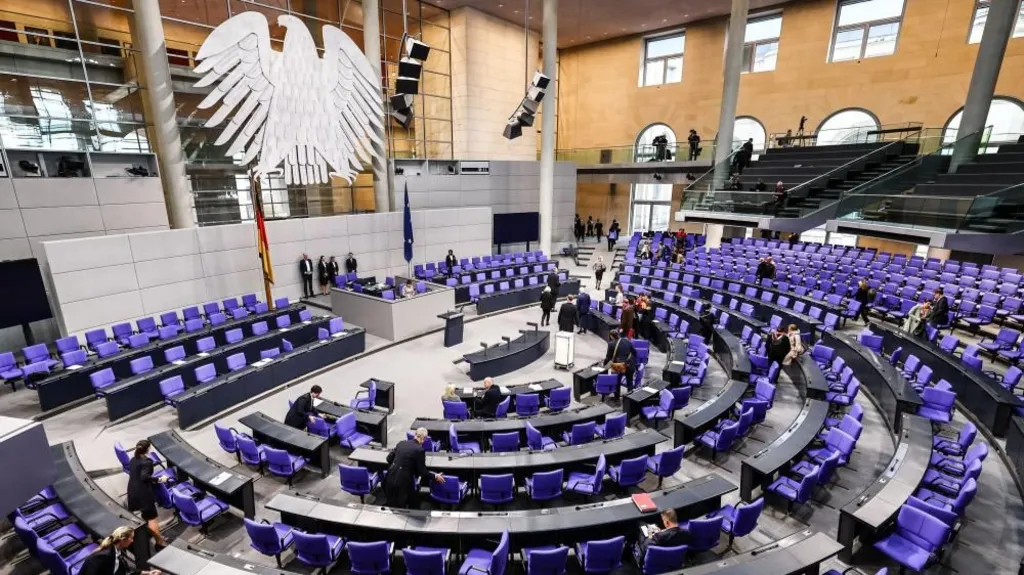Germany plans February election after coalition collapse
3 min read
Germany is set to hold a general election on February 23, following the collapse of the ruling coalition between Chancellor Olaf Scholz’s Social Democrats (SPD) and their coalition partner, the Free Democrats (FDP). This announcement comes after weeks of internal tensions that culminated in Scholz firing Finance Minister Christian Lindner, a senior member of the FDP. The dissolution of the coalition has sent shockwaves through Germany, plunging the country into a political crisis that threatens the stability of Europe’s largest economy.
The proposed election date, February 23, is still subject to confirmation but is widely expected to be finalized following a series of procedural steps. According to reports from the German press agency DPA, these steps are largely formalities. The next major step in the process is a confidence vote in the Bundestag, Germany’s federal parliament, which Scholz will face on December 16. Should he lose this vote—something many expect—Scholz will formally propose the election date to President Frank-Walter Steinmeier, who will have 21 days to dissolve the Bundestag and call for new elections.
The dramatic breakdown of the coalition reached its boiling point last Wednesday when tensions flared in the Bundestag during a debate over the 2025 federal budget. Scholz’s decision to fire Lindner followed a series of disagreements over key policies and allegations of betrayal. Scholz accused Lindner of putting his party’s interests ahead of the country’s well-being, saying he had “betrayed my confidence.” Lindner, for his part, responded sharply, accusing Scholz of leading Germany into a period of uncertainty and instability.
The rift between the two leaders has exacerbated an already challenging political environment in Germany, just as Europe is grappling with wider geopolitical and economic uncertainties. The timing of the coalition’s collapse is notable, coming just hours after Donald Trump’s victory in the 2024 U.S. presidential election, which sent ripples of uncertainty across the continent, especially regarding the future of European security and economic stability.
Scholz had initially proposed holding a no-confidence vote in January and scheduling the election for mid-March, but this timeline was rejected by opposition leader Friedrich Merz of the Christian Democratic Union (CDU). Merz argued that the government’s dysfunction was too urgent to delay, and he pushed for a faster election. Following these developments, it was reported that the leaders of both the SPD and CDU had agreed on the February 23 election date, with support from the junior coalition partners, the Greens and the FDP.
The collapse of the coalition and the subsequent call for new elections have raised concerns about the political and economic implications for Germany. The country is already facing challenges including rising inflation, a post-pandemic recovery, and the ongoing energy crisis exacerbated by the war in Ukraine. With Scholz’s leadership now in question, the uncertainty surrounding Germany’s political future is only expected to deepen in the coming months.
Scholz’s government had been under strain for months, and the dispute over the 2025 budget—an issue central to the country’s post-pandemic recovery plan—served as a tipping point. Lindner, a key figure in the FDP, had pushed for tighter fiscal policies, while Scholz, representing the SPD, favored more expansive spending to stimulate growth and address social needs. The disagreement became symbolic of the broader ideological divide between the parties, eventually leading to the breakdown of the coalition.
As Germany prepares for an election, questions loom over who will succeed Scholz, and whether the next government will be able to stabilize the political situation and address the mounting challenges facing the nation. The opposition CDU, which had long criticized Scholz’s leadership, is now positioned to capitalize on the government’s turmoil, and a fierce electoral battle is expected.
The upcoming election in February will not only determine the future of Germany’s leadership but will also have significant implications for the European Union as a whole. Germany’s political stability is key to the EU’s broader efforts to navigate economic challenges, address security concerns, and manage internal divisions. With the political landscape in flux, the February election is set to be a pivotal moment for both Germany and Europe.





